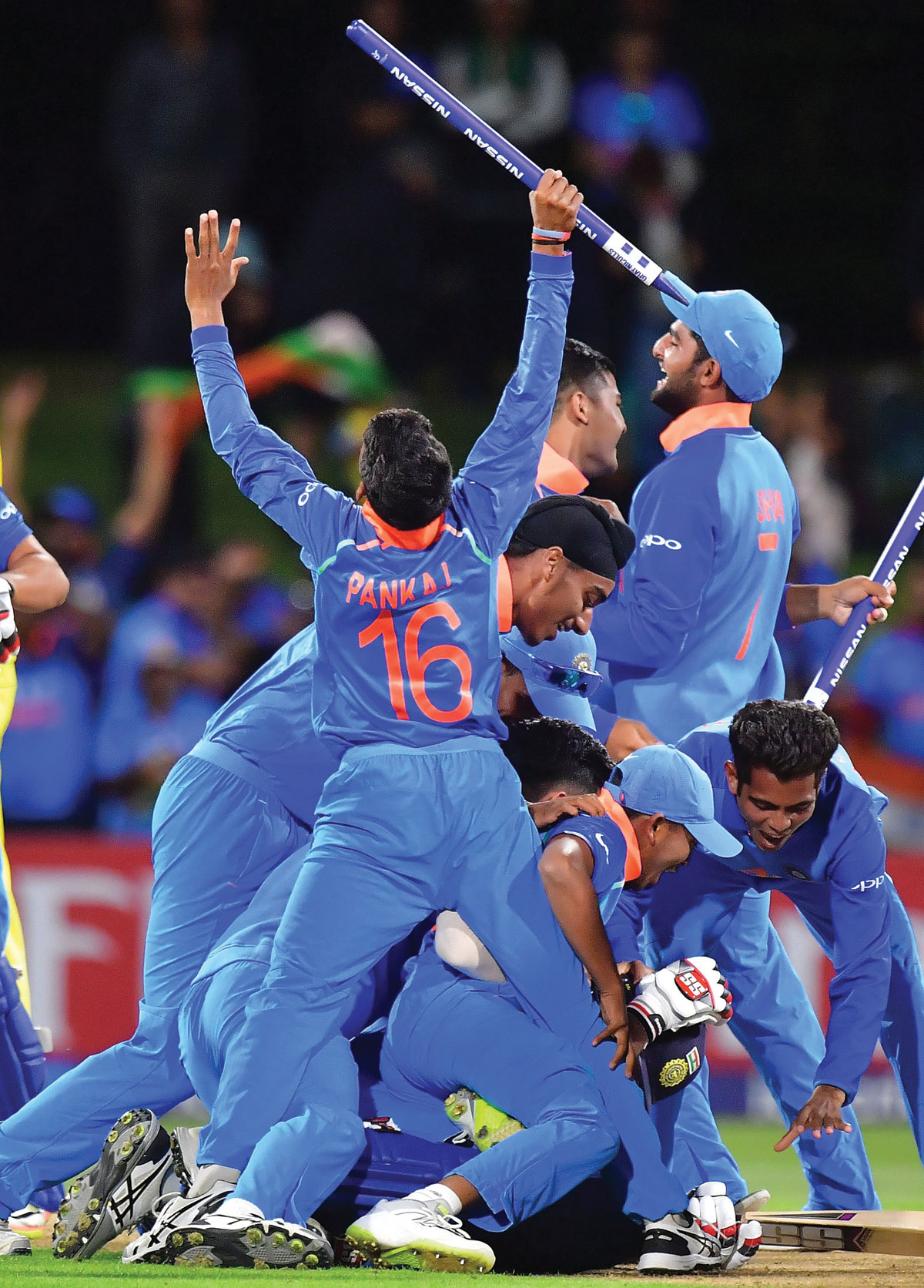Indian Youth Bleed Blue
India celebrate their win in the U19 cricket World Cup final match between India and Australia at Bay Oval in Mount Maunganui, New Zealand, Feb. 3. (Marty Melville/AFP/Getty Images)
India lifted a record fourth U-19 World Cup trophy, Feb. 3, after an eight-wicket rout of Australia in the final, underlining their dominant run in the tournament. In a first of its kind event in India, four senior most judges of the Supreme Court mounted a virtual revolt against the Chief Justice of India. No more free electricity in India, this could be the next big reform of the Modi government after GST. President Donald Trump called for a merit-based immigration system that could benefit Indian professionals.
India lifted a record fourth U-19 World Cup trophy, Feb. 3, after an eight-wicket rout of Australia in the final, underlining their dominant run in the tournament and giving Rahul Dravid the biggest success of his coaching career. India had all their bases covered with bowlers bouncing back to dismiss Australia for 216 from 183 for four at one stage. The highly-rated batting, barring a minor blip, completed the job with conviction as India chased down the modest target in 38.5 overs. Cricket legends Sachin Tendulkar and Sourav Ganguly emphasized on smooth transition of the Under-19 World Cup winning players, who were impressive with their discipline and controlled aggression during their victorious campaign.In a first of its kind event in India, four senior most judges of the Supreme Court mounted a virtual revolt against the Chief Justice of India Dipak Misra, raising a litany of serious grievances they said are afflicting the highest court of the land and warned that if unresolved these could destroy the democracy of the country, writes Priyanka Bhardwaj.
No more free electricity in India. Could this be the next big reform of the Modi government after GST? The blueprint to amend India’s Electricity Act has been put in place by the union power ministry. The next step is approval in Parliament. So far, political expediency has skewed the tariff structure in India’s power sector with individual consumers, especially in rural areas and the agriculture sector, charged rates that are well below cost of generating electricity, writes Siddharth Srivastava.
The flood of low-skilled immigrants into the U.S. has suppressed wages, harmed American workers and strained federal resources, the White House said, a day after President Donald Trump called for a merit-based immigration system that could benefit Indian professionals, writes Lalit K. Jha.
Following historic wins at the ballot box in November 2017, a group of Indian American philanthropists, community leaders, and political operatives have come together to formally launch the Indian American Impact Project (“Impact Project”) and Indian American Impact Fund (“Impact Fund”), collectively known as “Impact.” Bold new initiatives are slated to build a nationwide pipeline of Indian American leaders in politics, policy, and government, writes Gautam Raghavan.
A young actor from Hayward, Calif., made his debut in a Bollywood film “Warrior Savitri.” The film was banned in many parts of India for portraying Goddess Savitri as a modern woman. Siliconeer talks to Gautam Sharma about his humble beginning.
India’s concept of censoring films by a board is “faulty,” said noted actor-filmmaker Nandita Das, asserting that a handful of people cannot decide what an entire nation wants to see, writes Meraj Bhat.


